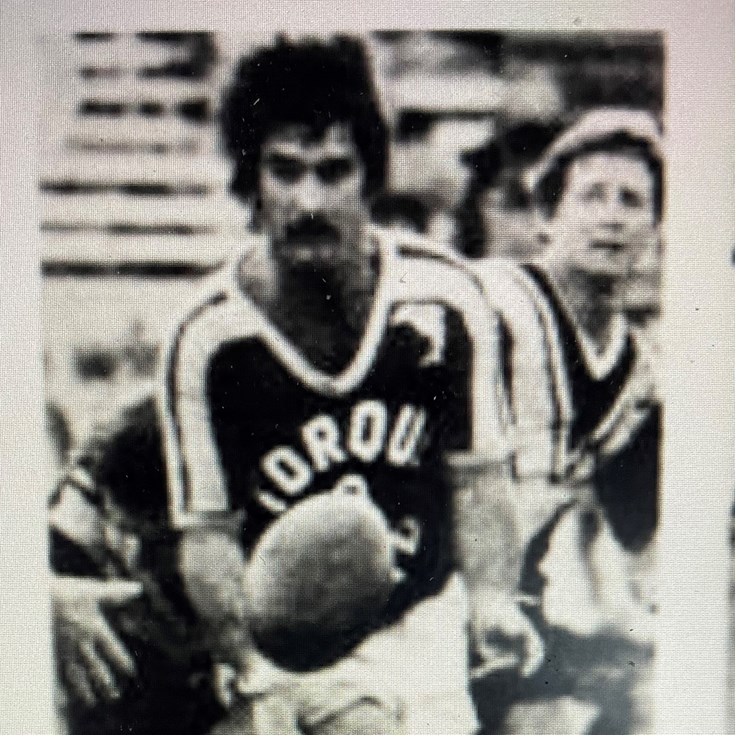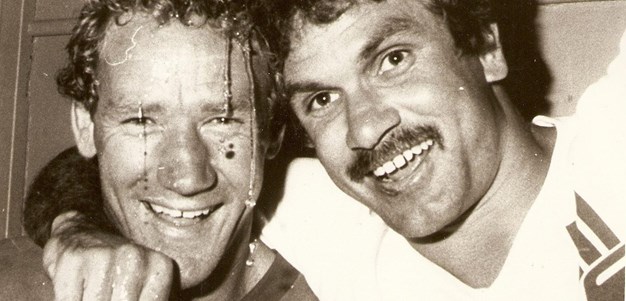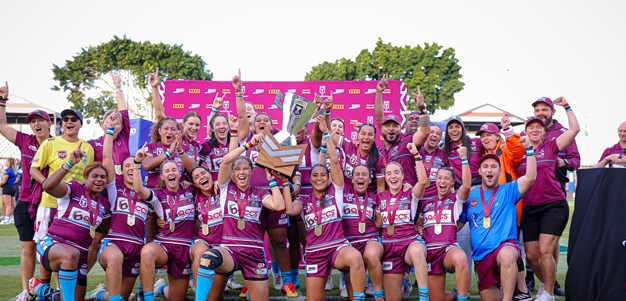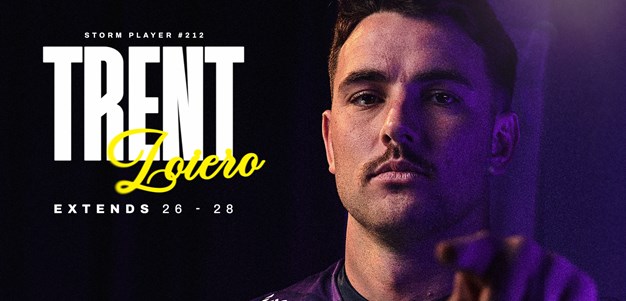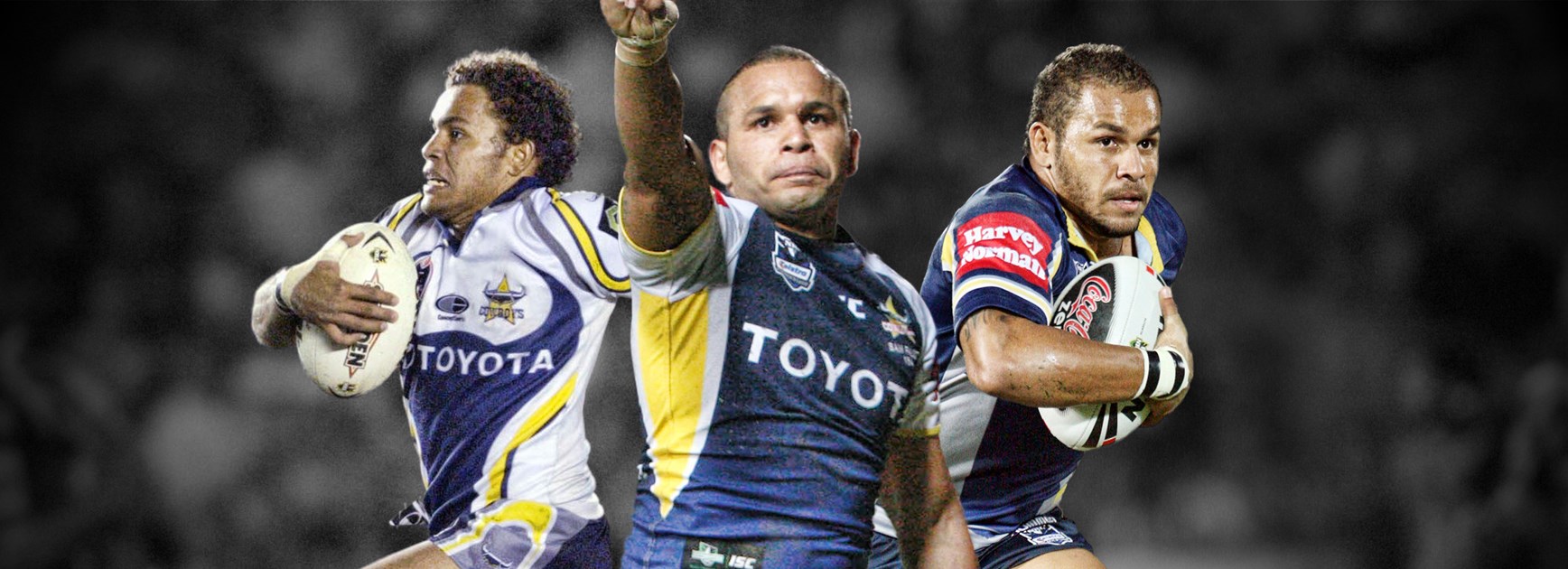
Matt Bowen was a player with a uncanny knack of making the difficult look easy. The sight of the elusive No.1 running off a JT special and gliding across the turf to score will live long in the memories of Cowboys fans.
Legendary Maroon Darren Lockyer labelled Bowen a ‘little freak’, while Phil Gould described him in 2005 as a ‘modern-day icon of the game’ because of his unique football instincts.
Affectionately known as ‘Mango’, Bowen played 270 games for the North Queensland Cowboys from 2001-13, forming a lethal combination with Johnathan Thurston when the champion playmaker arrived from the Bulldogs in 2005.
The youngest of six children, Bowen grew up in the Indigenous community of Hopevale in Far North Queensland with his sister and four brothers.
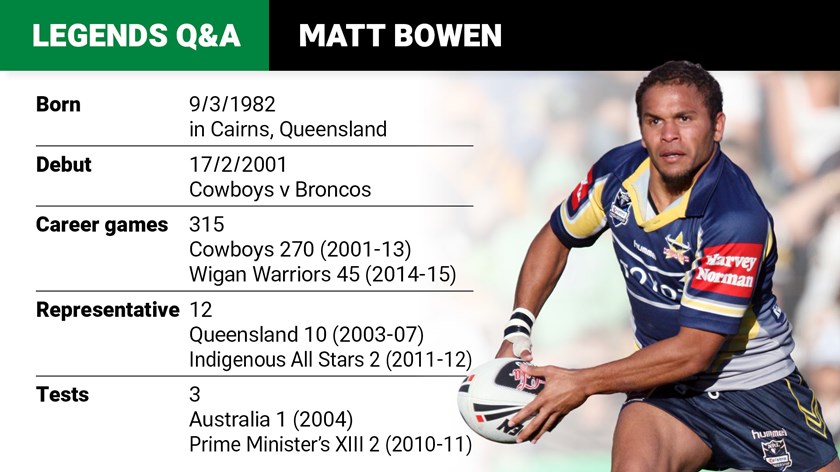
Matt Bowen Q & A
What were your memories of rugby league growing up in Hopevale?
Mum and Dad had a little farmhouse and every now and then we didn’t have power, but when we did, I’d watch the footy on TV with Dad. I used to love the Sydney Roosters and then the Broncos. I made a goal that I really wanted to do something with rugby league and did everything I could to achieve my goal. We didn't have a junior team sport in the community, so it wasn’t until I went to high school that I started playing rugby league in a competitive team situation.
You attended Abergowrie College near Ingham and started playing league from the age of 12. What were your greatest achievements playing schoolboy football?
We won the Confraternity Shield in 1999, a big competition within the Catholic schools around Queensland. I remember coming up against Johnathan Thurston, who was playing five-eighth for St Mary's College and I played five-eighth for my school. We made it to the state final in the Aussie Home Loans Cup back then. I went down to play Palm Beach Currumbin before a Broncos game in ‘99 and it was one of the best years Abergowrie ever had.
You attracted interest from the Broncos, Dragons and Sharks at that time. How did it feel to have a number of NRL clubs chasing you?
I was still a scholarship holder with the Cowboys when I was 15, but obviously going to competitions like the Aussie Home Loans Cup, you were always in the eyes of scouts. If I was to play first grade though, I wanted to do it with the Cowboys, because it was close to home. Growing up the Broncos were the second choice, but I stuck with the Cowboys.
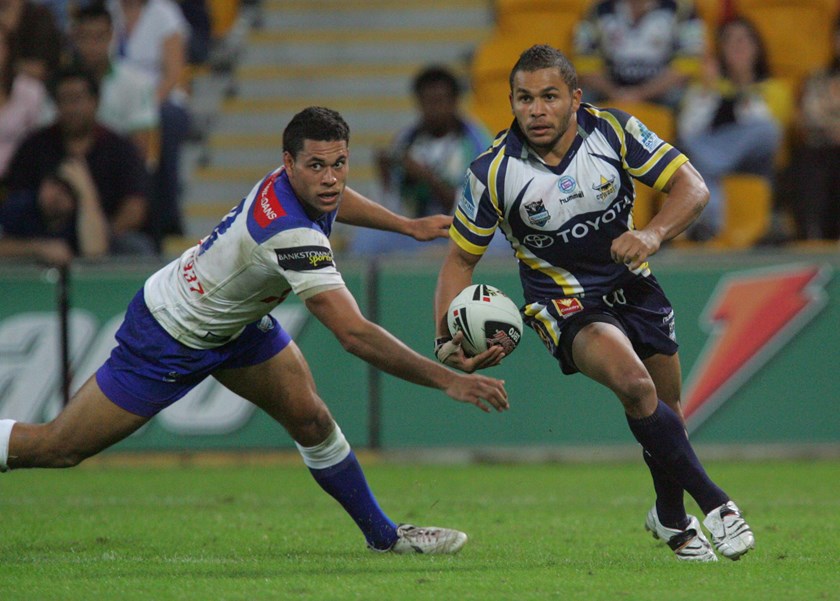
You beat the Broncos 18-17 at home in your NRL debut in 2001. How did it feel to run out for your first game?
After watching them for all of those years and then running out against guys like Shane Webcke, Darren Lockyer, Gordon Tallis and Wendell Sailor... they were the boys you looked up to and here I was just a little 18-year-old kid, probably 70 kilos running out to play against them. It was a big achievement, not just for myself but my family too. I loved every moment and it’s one game I’ll always remember.
At the end of that first year you were named at halfback for the Junior Kangaroos. Who did you call first to give them the news?
To get that call to play for the Junior Roos over in New Zealand at halfback against the Kiwis was a pretty big achievement, and I played alongside guys I grew up with like Justin Hodges and Brent Tate. We all played Juniors together within Queensland growing up. I called Mum and Dad and they were pretty happy.
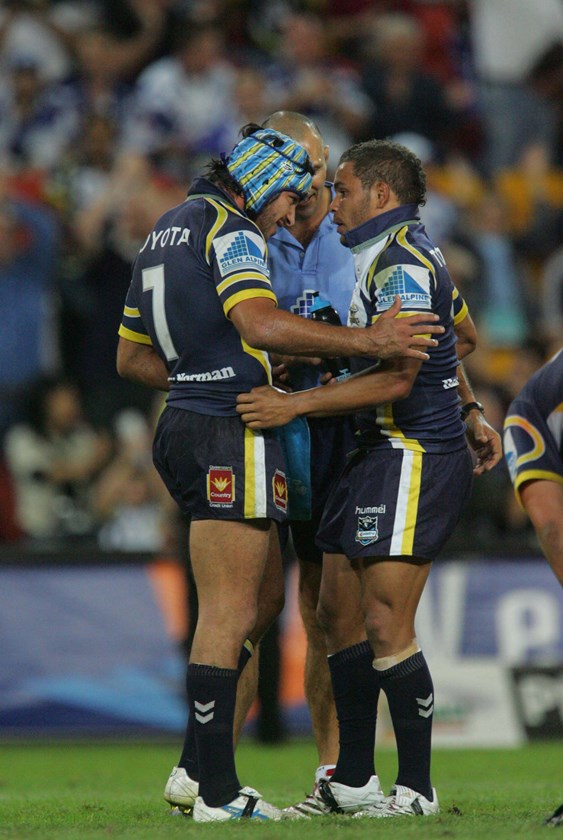
Your Origin debut came in 2003. That must have been a massive buzz?
Peter Parr (Cowboys CEO) had called me into the office, sat me down and said that he had a phone call from Wayne Bennett and that I was selected in the 17 for Queensland. I thought he was geeing me up. It was one of the moments you wait for, but it came up pretty early in my career. I always dreamed of playing for Queensland, and that was my goal. It was an unbelievable experience.
What are your memories of Game One in 2005 when you snaffled an intercept in extra-time and raced away to win the match for the Maroons?
That clip sort of shows up every year around Origin time and I really feel for Brett Kimmorley who threw the pass. To score a try like that at Suncorp is something that I will always remember and is a very special moment. To be part of that, playing for Queensland and putting that jumper on, it’s always a dream come true.
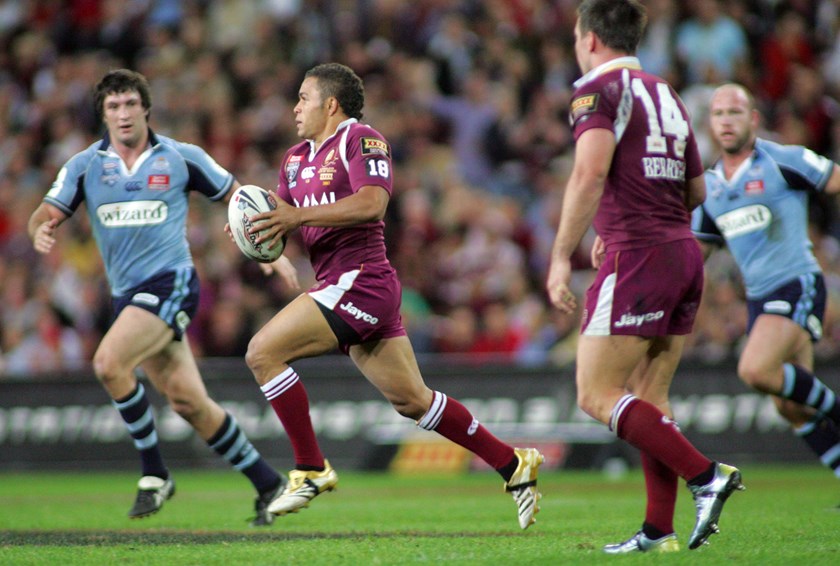
The year before that the Cowboys made their first ever finals series after some tough years. What was the key to the turnaround?
Before 2004 we were always getting pumped. We started to buy players and a few junior players were coming through like Aaron Payne, who came of age in 2004. To be part of that squad and playing against the Broncos in a semi-final at home was one of the biggest games we ever played against them. We had never beaten the Broncos before then, it’s something I’ll never forget.
Johnathan Thurston joined the club the following year and you formed a great combination. How much did JT's arrival mean to the team?
He brought that experience from when he was playing with the Bulldogs and they won the competition in 2004. It didn’t just happen though. Every time we played, we’d look for each other and it was second nature and off the cuff, but we knew what each other was doing. It was good to have him.
You made it all the way to the decider but the Tigers were too good. How tough was that to take?
Every player trains hard and every team wants to be there. We were lucky enough to be a part of that. Even today it still hurts that we didn’t come up with the chocolates.
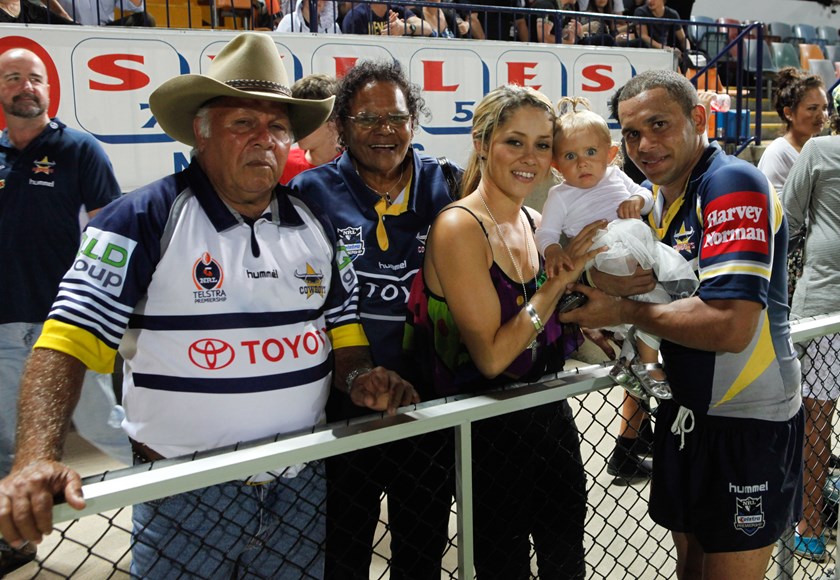
You won a swag of awards in 2007, including RLPA Player of the year, Cowboys Player of the Year and Dally M Fullback of the Year. That must have been incredibly satisfying?
It’s something I hold close to my heart, and you can get all the individual accolades you want, but the end goal was to win a premiership and we hadn't been able to do that.
How tough was the 2008 season when a knee injury ruled you out for most of the year?
I never really had an injury before then so it was really hard. The biggest thing was knowing you can't do the stuff that you normally do when you have two good knees. To have that happen to my left knee and try to come back was always going to be tough. The next year I did my right knee but at least I knew what to expect with the recovery was and rehabilitation required to get me back on the field. There were some pretty hard times, but at the time my partner and I had our first child. To come home to a little girl was something special. That drove me and I really wanted her to watch me play footy. I think she came at the right time. You question yourself but I knew I was still only young and still had plenty of footy ahead of me, so I trained a bit harder and got back on track.
At the end of 2013 you headed to Super League to join Wigan after 270 games for the Cowboys. Can you describe the emotion knowing you were leaving the club?
Being told to leave the Cowboys and that I wasn’t needed was a bit disappointing. Not playing in front of the home crowd in 2014 was hard for me. It was difficult for me to try and get over knowing that I wasn’t going to be there anymore. Everyone thought I’d never leave the Cowboys but I keep telling people today that I wish I’d have done it a bit earlier in my career.
How rewarding is your current role in community engagement with the Cowboys talking to school kids about health and wellbeing?
To give back to the community and visit communities throughout Queensland and encourage kids about how important school and an education is, healthy living and healthy eating, it’s always good to put a smile on their faces.
